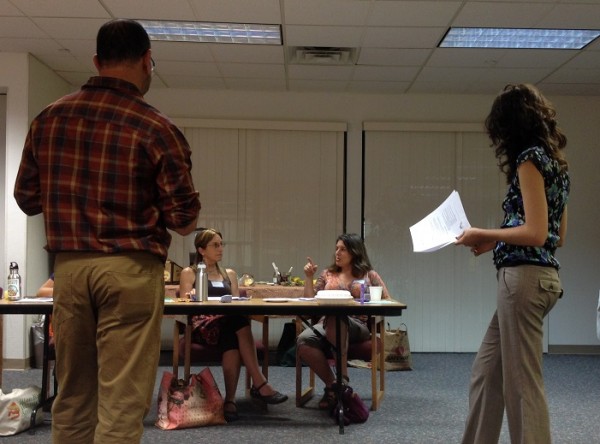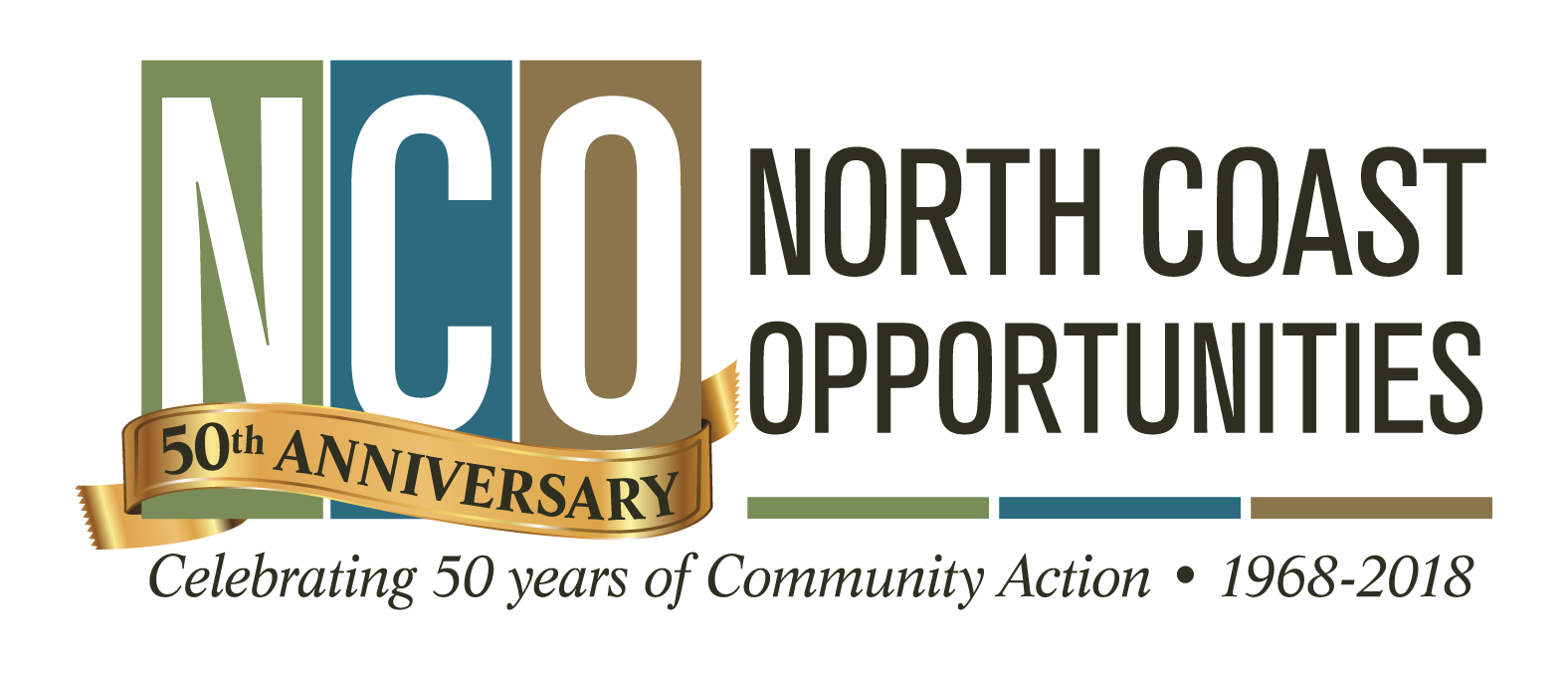
Above: Sheldon, right, and SOUP and Food Prep Coordinator April Cunningham talk about how to leverage social media as Kusnir and Quintero look on.
Learning to be Clear Advocates for a Cause
Friday, August 29, 2014
On Friday, August 29, 16 community members gathered at Mendocino Works in Ukiah for a free training about “Communicating for Policy Change.”
The focus was largely on public health. With constant media and advertising asserting that health is about personal choice, the group wanted to learn ways to get the message out that our environment affects our ability to make healthy choices. “Take vending machines,” says Tarney Sheldon of North Coast Opportunities – Community Action. “If I’m thirsty and the only option is soda, where does that leave me?”
The workshop was facilitated by Julieta Kusnir and Fernando Quintero of the Berkeley Media Studies Group, who have done hundreds of such trainings around North America through a California Endowment for Change grant. The day-long training focused on strategies to communicate with policymakers and other thought leaders, as well as how to communicate with the public through news and other media outlets.
“Don’t think of an elephant,” chided Quintero playfully, referencing George Lakoff’s book of the same name about shaping debates. “Whatever you say will make people think about it, so don’t talk about negatives.” Instead, the group learned how to talk about shared goals. “As a community, you have more in common than you may realize,” said Kusnir. “When you find those common values, that’s where you can start making positive changes.”
Sheldon learned about the training and registered for a workshop in Berkeley, but Kusnir contacted her to ask if there would be enough interest to do the training in Mendocino County. “I was thrilled that they wanted to come up here,” says Sheldon, who is the Nutrition Basics Project Coordinator. “Instead of just one person getting this information, they were able to share it with a group of active community members who will put it to good use.”
As Kusnir and Quintero shared strategies for how to create a message that describes the problem, the solution, and why it matters, participants engaged with the “table toys” in front of them, including colorful pipe cleaners. “We learned through our work with early care educators that people who use their hands learn better and retain more information,” explains Quintero. The group also paused frequently to take “stretch breaks,” another strategy to keep people alert and engaged.
Executive Director Patty Bruder was one of 10 NCO employees in attendance, and said that the training “reminded us that just because we’re familiar with a subject doesn’t mean everyone else is. We have to make sure we’re really clear about what we’re talking about and why it’s important.”
